Check out our FAQ page for additional information
This guide will assist you in locating published scholarship (books and journal articles) to read on a topic. Choose a topic that is interesting to you and which will work within your assignment's parameters.
First, read a good summary of the topic in a subject encyclopedia, like those listed below. Second, once you have a basic overview of the topic then search for published scholarship, using catalogs to find scholarly books, and databases to find scholarly journal articles.
Remember to evaluate the accuracy of your resources, and think critically about their content and arguments. When in doubt, check with your Sociology instructor.
Subject encyclopedias and other reference guides can provide good background information on a topic. Many reference books are in printed format, while others are available in electronic resource collections such as:
Gale Virtual Reference Library
JSTOR is a multi-disciplinary collection of scholarly journals and e-books that include primary sources, images, and more.
Catalogue Link: OneSearch.
JSTOR provided expanded access during the pandemic (June 2020-June 2023). Expanded access expires on June 30, 2023. CUNY will reinstate that access beginning in January 2024.You may review the Electronic Resources Status Dashboard for updates. Questions? Email: access-support@qc-cuny.libanswers.com or Open a Ticket!
Nexis Uni offers intuitive searching for all levels of research experience, empowering students to Access discipline-focused pages with curated news, featured publications, and relevant court cases for Political Science, Business, and Criminal Justice majors.
Catalogue Link: OneSearch.
This database is the world's largest resource devoted to peer-reviewed literature in behavioral science and mental health.
Catalogue Link: OneSearch.
Social Sciences Full Text (H.W.Wilson) covers the latest concepts, theories, and methods from both applied and theoretical aspects of the social sciences.
Catalogue Link: OneSearch.
Provides full-text, Peer-Reviewed sociology journals covering many studies including gender studies, criminal justice, social psychology, racial studies, religion, and social work.
Catalogue Link: OneSearch.
Indexes the international literature of sociology and related disciplines in the social and behavioral sciences; (1952-current).
Catalogue Link: OneSearch.
What is a scholarly journal article?
A scholarly journal article is written by a scholar or an expert, and provides a detailed analysis of a topic. It is written in the specialized language of a scholarly discipline (such as Philosophy). It documents the resources the writer used by providing bibliographic citations such as footnotes, endnotes, and bibliography so a reader can check or repeat the research the scholar has completed.
A scholarly journal is edited by scholars, and any article published in the journal has usually been approved by the author's peers or by referees (other scholars expert in the subject who serve as editors or readers and critique the article before it is accepted for publication). This is why most scholarly journals are referred to as a Peer-Reviewed or Refereed journals.
USC Libraries has an excellent guide to scholarly, popular, and other sources.
Evaluating Articles and Other Sources
Not sure if an article is a legitimate source? Give it the CRAAP test! Think about its Currency, Relevance, Authority, Accuracy, and Purpose. There are a lot of guides to the CRAAP test online: Central Michigan University's is excellent.
A sophisticated database program that can be used to view and analyze an array of community and regional data from neighborhoods and other local areas of New York City and New York State; includes population statistics, immigration trends, socio-economic indicators, birth and death data, hospitalizations, local trade data, and more, with data from 1980, 1990, 2000, 2010 census, and other sources.
New data is not added to the system. It is relatively inactive.
Social Explorer provides interactive demographic data. Its mapping tools allow data to be easily visualized, and it also allows users to extract data table reports. Users may generate custom reports and maps, and they may create personal accounts to save their reports and maps.
Catalogue Link: OneSearch.
To use Social Explorer remotely, save, and share projects, please create a personal account.
The Statistical Abstract of the United States is a comprehensive summary of statistics on the social, political, and economic organization of the United States.
Catalogue Link: OneSearch.
Reports, studies, and data are sometimes available from the major scholarly organizations for the study of sociology.
